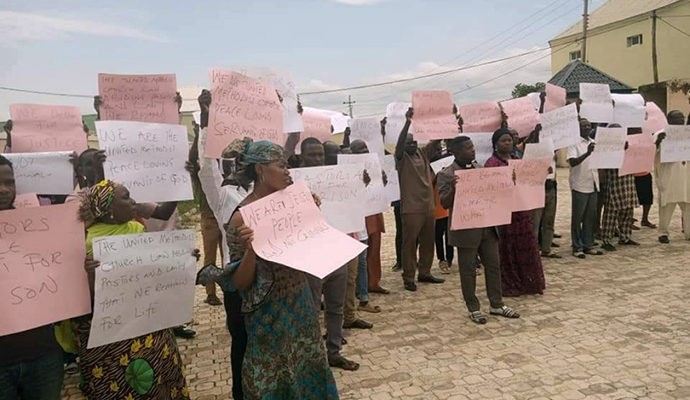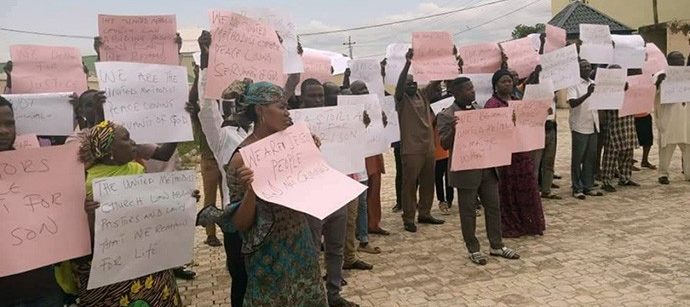Some 13 months before the United Methodist Church’s top legislative body, the General Conference, decides whether to break up the worldwide denomination, pitched battles are taking place between church authorities and dissident congregations and groups at both ends of the church’s political spectrum.
Two of the most recent public disputes pit a U.S. bishop against a rebellious traditionalist congregation in the state of Georgia, while in Nigeria a traditionalist bishop’s conflict with his former administrative assistant has erupted into police complaints and prompted other bishops to look into the situation.
Both incidents reflect the current struggle between traditionalist forces pressing for doctrinal purity by resisting existing church law, and progressive forces desiring contextualized, often democratic, governance. At their most macro level, both disputes call into question whether the centuries-old episcopal (meaning “bishop”) form of church authority can survive much longer in the internet-connected, egalitarian 21st century.
North Georgia dispute
In the United States, the North Georgia Annual (regional) Conference announced July 12 that its board of trustees was assuming management of the property of Mt. Bethel United Methodist Church in Marietta, Ga., because of “exigent circumstances.”

Bishop Sue Haupert-Johnson
The dispute began in April when resident Bishop Sue Haupert-Johnson attempted to exercise her authority to reassign Mt. Bethel’s pastor, Jody Ray, to a new conference staff position from his post as senior pastor. Ray not only refused the assignment; he reportedly hung up on the bishop when she called, and the next day surrendered his United Methodist clergy credentials. Ray told the Mt. Bethel congregation during Sunday worship (and specifically his children seated in church) that he gave up his credentials because he wouldn’t “bow to progressive theology.”
When ordained, United Methodist elders commit to an “itinerant” ministry, meaning they agree to go wherever they’re sent. Half a century ago, pastors sometimes didn’t know where they’d be serving until appointments were announced each year at annual conference sessions. Since then, a more humane system of appointment consultations with both pastors and congregations has developed, but there are still instances in which late-breaking appointments are made, as in Ray’s case.
Haupert-Johnson has borne a barrage of criticism since the incident became public, despite being within her authority under United Methodist law to assign any ordained elder anywhere. Mt. Bethel leaders have filed a formal complaint against her with the Southeastern Jurisdiction College of Bishops, while the Wesleyan Covenant Association, the primary traditionalist caucus, excoriated Haupert-Johnson July 16 in a post titled An Episcopal Fiasco in North Georgia.
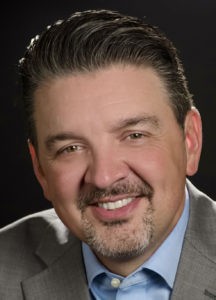
Jody Ray
Mt. Bethel UMC has been a prominent congregational supporter of the Wesleyan Covenant Association, which seeks to start a new denomination its leaders have named the Global Methodist Church. While Mt. Bethel claims 10,000 members on its rolls, fewer than 2,000 of them attend worship regularly, according to yearly reports. In addition, Mt. Bethel has fallen far behind on its annual contributions to church-wide ministries known as “apportionments.” Mt. Bethel also has contracted heavy debts in connection with a related church school without following required United Methodist financial procedures, according to a recent analysis by a North Georgia United Methodist layman, Pete Fleming.
Even with nuanced details of the dispute’s complexities readily available through multiple news sources, many United Methodists mainly view the North Georgia conflict broadly as another skirmish in which heavy-handed church authorities forsaking doctrinal integrity are persecuting staunch defenders of the true faith.
Nigeria dispute
The situation in Nigeria looms even more dire, where two administrative assistants to Bishop John Wesley Yohanna filed complaints with the police in Taraba State, alleging that a former assistant, Ande I. Emmanuel, and his companions are disrupting the church to the point of potential physical harm. Because Emmanuel participates in an ad hoc advocacy group, Africa Voice of Unity, the complainants reportedly alleged that he and his companions are promoting homosexuality, which is illegal in Nigeria. Africa Voice of Unity supports the Christmas Covenant, an alternative to schism that advocates allowing each UMC region to decide matters such as LGBTQ acceptance based on its own social and political contexts.
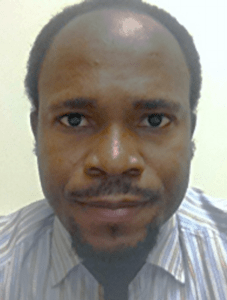
Ande Emmanuel
Emmanuel, two other pastors and a layman were subsequently arrested on charges of spying because they took and emailed some photographs of the outside of police buildings when they were called in for questioning about the complaints. They spent two nights in jail before being granted bail. They were scheduled for a July 19 hearing before a local magistrate.
Emmanuel alleges that he and other pastors and church members are being persecuted because they oppose Bishop Yohanna’s announced intention to take his Nigeria episcopal area into the Global Methodist Church. Until recently, the bishop was mainly defended by two of his administrative assistants, Yayuba Baziel Yoila and Yunusa Z. Usman, who filed the police complaint against Emmanuel and others. However, the bishop recently granted a Zoom interview with Sam Hodges of United Methodist News. Bishop Yohanna is one of the directors of United Methodist Communications, of which UM News is a part.
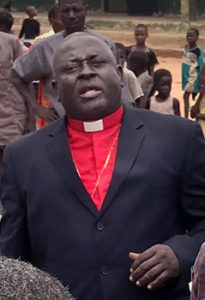
Bishop John Wesley Yohanna (Photo by Tim Tanton, UM News)
Both Yohanna and Emmanuel vigorously deny each other’s allegations against them. Both have filed complaints against each other, Yohanna against Emmanuel in the Southern Nigeria Conference and Emmanuel against Yohanna with the West Africa College of Bishops. The latter body has become so concerned about the situation that it is sending a fact-finding team to investigate.
Meanwhile, the Nigeria dispute is reverberating across United Methodism. Sam Hodges wrote:
“More recently, a GoFundMe effort to provide legal representation and other support has raised about $3,300, including $500 from the Rev. Adam Hamilton, senior pastor of the United Methodist Church of the Resurrection, in Leawood, Kansas.
“’I am hopeful that United Methodists across the divide can agree that these pastors and laity should not be incarcerated for supporting the Nigerian UMC remaining part of The United Methodist Church, just as those leaving to join the new Global Methodist Church should not be detained by the police,’ Hamilton said by email.”
The United Methodist General Conference, its top legislative body, was supposed to decide next month whether to split the 12-million-member worldwide denomination. However, the persistence of the global coronavirus pandemic caused organizers to postpone the gathering for a second time to late August 2022 in Minneapolis. If disputes such as those in Georgia and Nigeria continue to erupt and intensify, there may not be much of a worldwide denomination left to split.
Related articles:
Now there appear to be three paths for once-united Methodists | Analysis by Cynthia Astle
A primer for non-Methodists on the Methodist ties that bind | Analysis by Cynthia Astle
United Methodists learning more about Christmas Covenant through videos

